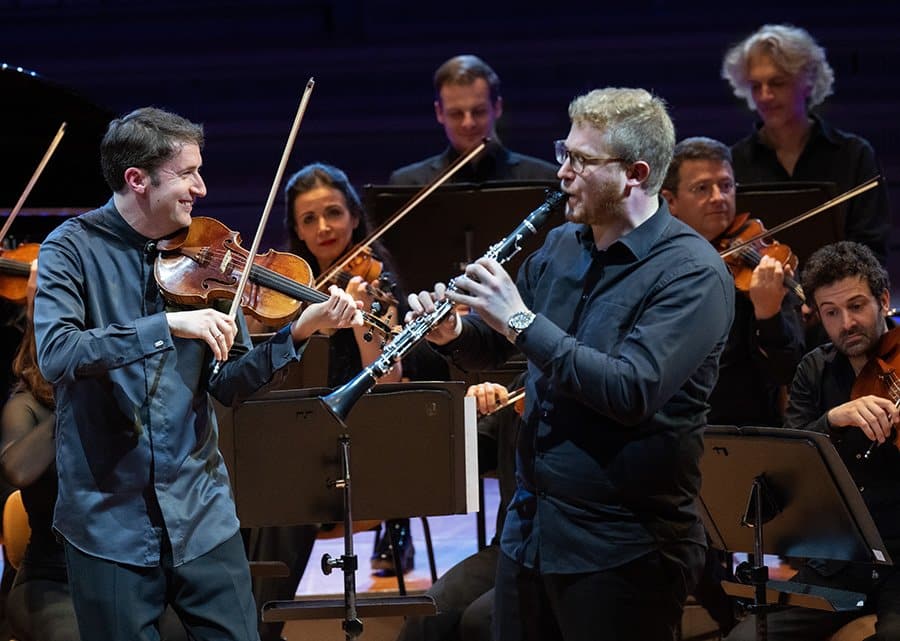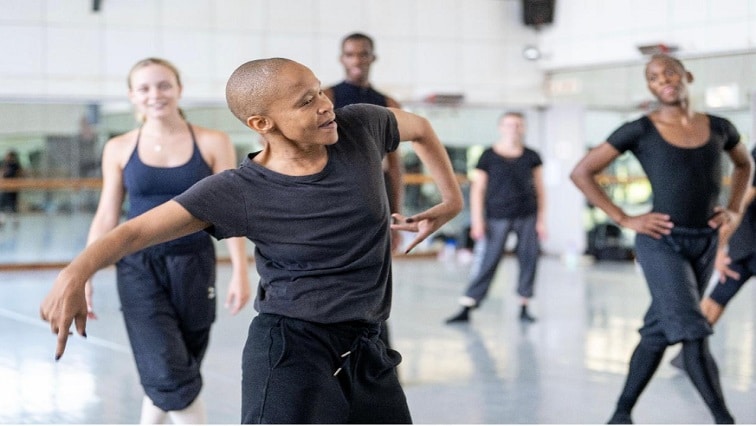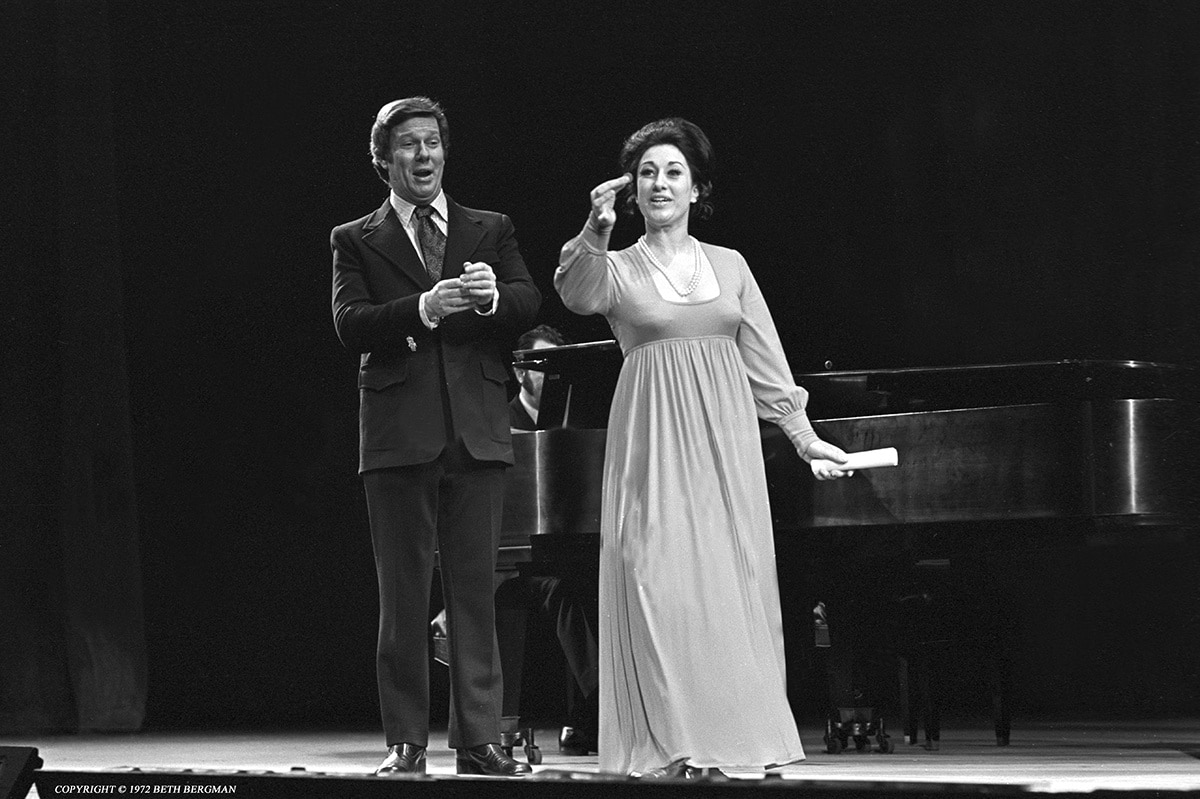So did the Berlin Philharmoniker’s klezmer night get the beat?
OrchestrasJoel Cohen has watched the orchestra’s stream and has shared this review from the Boston Musical Intelligencer.
…. Andraž Golob, who recently joined the Berlin orchestra as bass clarinetist, was the featured soloist and arranger of the penultimate piece, called Happy Nigun. The young Golob, of Slovenian origin, turns out to be an explosive klezmer clarinetist; his quasi-orgiastic, high-register wails and cries elicited cheers from the near-capacity audience. A favorite klezmer repertory piece, the Odessa Bulgar, arranged and led by Bendix-Balgley, and featuring the characteristic “Bulgarian” rhythmic pattern of 3 plus 3 plus 2 ended the program on a high, jubilant note, and was encored. (Footnote: for the technically challenged, you can hear that bulgarisch beat on the 1939 Benny Goodman recording, “And the Angels Sing,” just before the frelyach trumpet solo).
Jubilant indeed was the event as a whole, life-affirming and even death-defying. The memory of the Jews expelled from the orchestra in 1933, including the concertmaster Szymon Goldberg, and of the once-independent Berlin Philharmonic’s subsequent career, 1933-1945, as the Reichsorchester, the official, public face of Nazi arts policy, is not to be effaced. The film clips of Wilhelm Fürtwangler leading the orchestra in Beethoven and Richard Strauss before the Third Reich higher-ups, with gigantic swastika flags adorning the hall, witnessing the prostitution of great art to a project of absolute evil, will be viewed forever.
And so for some of us, amidst the laughter and rejoicing, came tears. This is, I believe, as it should be….
Read on here.
Image: Noah Bendix-Balgley and Andraž Golob play Happy Nigun (Monika Rittershaus photo)






Not to counter your point in any way, but there is a photo of Goebels going on and on, while both Strauss and Furtwaengler are slumping in their chairs and nearly falling asleep. They appeared anything but enthused. If Furtwaengler actually did take action that protected some Jews in his orchestra, then his staying there would have been a good thing. I’ve yet to read definitive word on this point, one way or the other. It seems the facts are illusive. Strauss was clearly politically naive.
Sure, they say it don’t mean a thing if you ain’t got that swing, but nor is it enough to have that swing if you ain’t got that improv.
The essence of klezmer, like jazz, is improvisation.
The Berlin Phil has played jazzy pieces in its concerts, notably with Rattle, and its players are perfectly capable of reproducing all the effects of jazz, and sounding like jazz, yet…
In any case, all klezmer and jazz clarinetists today are classically trained, and conservatories should teach klezmer and jazz techniques as part of the basic clarinet curriculum.
It’d be a good thing if the musicians of the Berlin and Israel and New York philharmonics all could play klezmer, they all certainly have a hometown audience for it.
As a listener, I personally do not see why I should care whether the performer have been learning and practicing the notes for years or has created the piece on the spot. All I am interested in is how good the musical result is. Of course I can appreciate the talent for improvisation but it does not make my aural impression any different.
Ignorance is bliss, but it is not a virtue.
(You wouldn’t flaunt listening only to “Hooked on Classics”, would you?)
This is neither about any virtues nor about being hooked on anything. My point is that learned music sounds best when performers give an impression as if it is being created (improvised)on the spot, while music that is in fact improvised sounds best when its precision and accuracy give an impression as if it has been practiced for years. How performers arrive at these sublime results is irrelevant.
“…witnessing the prostitution of great art to a project of absolute evil, will be viewed forever. And so for some of us, amidst the laughter and rejoicing, came tears. This is, I believe, as it should be….”
I can tell you from experience that recalling those memories is not always appreciated. To be expected I suppose, it was such a terrible time and people want to forget.
Mazoltov!
This is not Hitler’s, or even Karajan’s, Berlin Philharmonic. When Sir Simon took over he said he’d been given a mandate to make the BPO an “orchestra of the 21st century.” And despite the carping you read on SD about today’s BPO, to me they’re the most innovative orchestra in the world – a symbol of modern Europe – and with a very diverse membership. Of course they’re going to have people who can do jazz and Klezmer. Maybe the LA Phil is equally creative, but they don’t have a Digital Concert Hall; kind of surprising given they’re in the entertainment capital of the world.
As I recall, the entertainment industry did not exactly open its pockets to fund the construction of the Disney Hall. However, the Ralph’s grocery chain donated over $7 million.
Nice to see the Boston Musical Intelligencer represented here